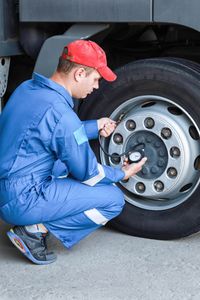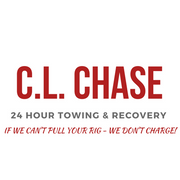How Do Underinflated Tires Affect Your Semi-Truck?

Maintaining proper air pressure in truck tires is essential for keeping yourself and other drivers and vehicles on the road safe. Ensuring the correct pressure will extend the life of the tires and prevent the need for emergency road services. Below is a brief overview of tire underinflation and how to avoid it.
Why Is Tire Pressure a Problem?
Tires are filled with air that is measured in pounds per square inch (psi). When the air pressure level falls below the manufacturer’s recommendation, the tires are considered underinflated. Because underinflated tires can’t provide the necessary support to hold up the weight of a semi-truck, they touch more of the road, which creates friction and leads to overheating.
Excessive tire heat can accelerate wear, reduce fuel economy, and create tread separation. Underinflation can also affect a tire’s ability to handle properly and may increase the likelihood of tire failure, blowouts, and the need for truck repair or emergency road services.
How to Prevent Tire Underinflation
 Improper maintenance and operational issues were the root cause of 32% of failed truck tires found on the roadside. Practicing proper tire maintenance is the most effective way to avoid damage or failure due to low tire pressure.
Improper maintenance and operational issues were the root cause of 32% of failed truck tires found on the roadside. Practicing proper tire maintenance is the most effective way to avoid damage or failure due to low tire pressure.
Regular tire pressure checks are essential and should be conducted by a driver or fleet manager at least once a week. To get an accurate measurement, allow the tires to cool for several hours before checking them.
Some companies employ automatic tire inflation systems for trucks and trailers, which utilize heat-sensing technology to alert drivers to over-heating wheels. These systems help drivers take preventative measures and avoid truck repair.
If underinflated tires leave you in need of emergency road services, contact C. L. Chase 24 Hour Towing & Recovery in Camp Douglas, WI. Since 1968, they’ve been providing 24-hour towing and recovery services to drivers throughout La Crosse, Jackson, Vernon, Wisconsin Rapids, and Chippewa counties. They are equipped to handle vehicles of all sizes, including semis, fleet trucks, RVs, and farm equipment. Visit their website to learn more about their services, and call (608) 427-6734 to request assistance.
About the Business
Have a question? Ask the experts!
Send your question

